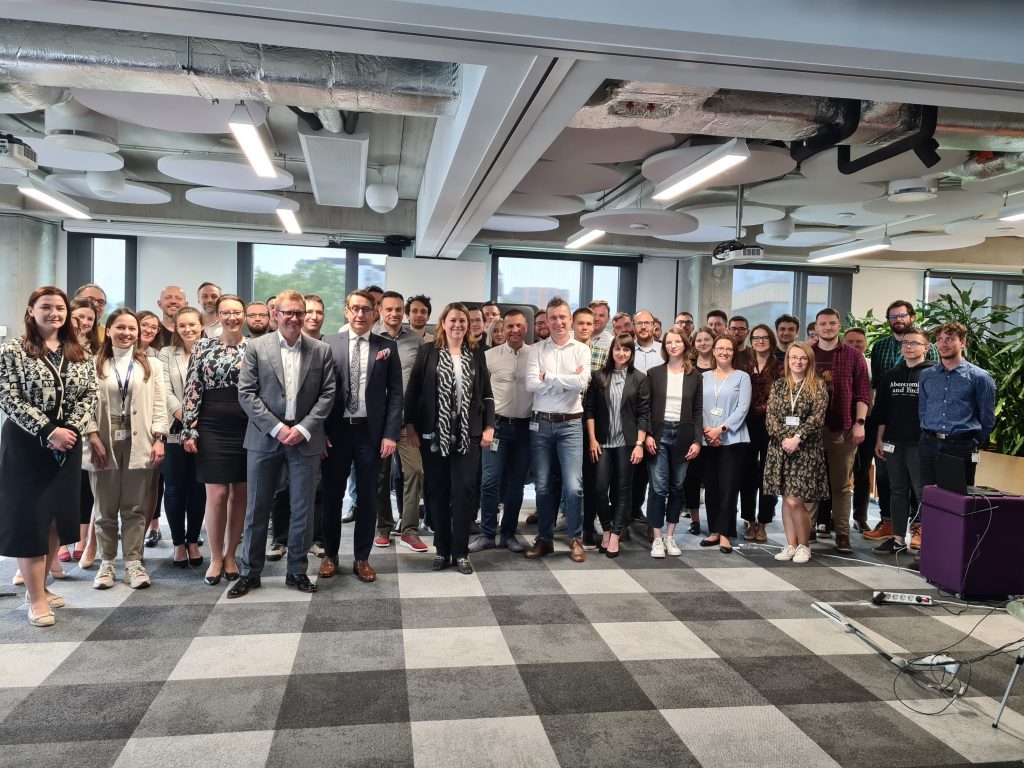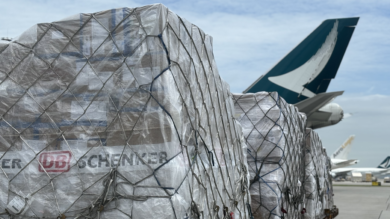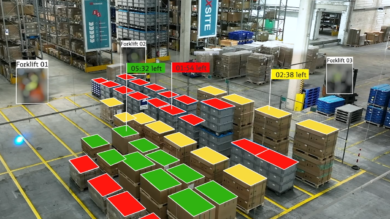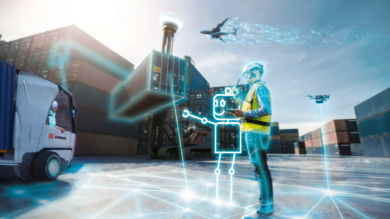One thing that remains certain is that the logistics industry keeps moving forward, despite large-scale supply chain disruptions, new regulations, restrictions, and shifts in customer demand. As we enter a new era with new technologies, practices, and standards to carry us through, digital solutions are at the center of it all: consistently changing the game.
Logistics Matters sits with Christa Koenen, CIO/CDO of DB Schenker and Member of the Board, on her first anniversary with DB Schenker. While getting to know her, she shares with us that she is convinced that digital solutions for today’s challenges in supply chain management are already becoming a differentiating factor in logistics. Have a read below to learn more.
Logistics Matters: Amidst global conflicts and supply chain disruptions, what is the current situation in the logistics industry, and more specifically in your field of IT&D?
Christa Koenen: Two and a half years ago, the pandemic threw the economy’s supply chains out of sync – and it still does. As a global logistics service provider, we are the link between industry and trade on the one hand and shipping companies, airlines, train operators and trucking companies on the other. It may be taken for granted and not the first thing on your mind when thinking of worldwide logistics operations; however, ensuring all IT and digital aspects of business continuity and secure IT operations in the face of global conflicts and supply chain disruptions is a very challenging field of activity.
Apart from current world affairs, other industry-specific factors are determining the current situation in the logistics sector. DB Schenker with its history of 150 years is regarded as an established player in the market. Nevertheless, we, like many of our large competitors, find ourselves caught between new market entrants, offering flexible, agile, digital solutions and business models on the one hand, as well as changing customer demands towards sustainability and digital aspects like real-time visibility, intelligence, and automation on the other. As a company, we are responding to these outside influences in various ways, such as by investing in our digital capabilities and through strategic partnerships and acquisitions.
Logistics Matters: What are the leading global trends and opportunities in the industry one cannot avoid?
Christa Koenen: From my experience in the transportation sector and recently in the logistics sector, key trends focus around a change in competitive landscape, increasing digitalization, changes in market structure, evolving customer needs, and sustainability. For example, customers are demanding more transparency; we must provide real-time data on all our shipments. What is more, we must provide information about the climate impact of the transport as early as the booking stage and, if possible, offer more environmentally friendly options.
I believe digitalization is a forward-looking topic and it is very close to my heart – and per role description, also an integral part of my job. The digital trends, expectations, and needs for the logistics industry in an evolving market are clear. New players are entering the market with new approaches shaping customer demands. Customers increasingly request an accelerated adaptation to a more volatile and changing environment. Our focus is to continuously expand our digital footprint and leadership position. Mastery of information flows is as crucial as managing physical ones. Customers increasingly expect to be able to monitor shipments at any given time, anticipate disruptions, and increase overall supply chain resilience. They more and more look for transparency on the CO2 footprints of their shipments to design more sustainable logistics and products. Answering questions like these is becoming a more critical decision factor in choosing a logistics provider.

Logistics Matters: What are the current challenges, and how is DB Schenker managing and navigating these unpredictable times?
Christa Koenen: Continued digitalization profoundly shapes the logistics market. Higher transparency is resulting in increased competition and more significant price pressure. Digital (ease and transparency of doing business) is becoming a key selection criterion in logistics. As a traditional player, we will have to compete effectively with digital freight forwarders and BCOs, both directly and as we pursue long-term growth. What will count most for any individual market player in any modality and region is the ability to deploy strong digital capabilities, most notably in presenting a seamless, transparent, and painless end-to-end journey to customers. Thus, technology is changing every aspect of how logistics companies operate, and digital fitness will be a prerequisite for success in order to sustain market share.
As a company, we need to monitor these developments very closely, derive implications from these for the future, and continuously build and acquire the right competencies to anticipate industry trends and meet customer needs across modalities and regions. Ultimately, tech excellence and digital leadership will allow us to tap into new business models and markets, evolving our business and market position.
Additionally, most recent events have shown that political and economic disruptions act as an accelerator for digitalization. These developments create an even more vital need for more resilient and agile supply chains for our customers. We cannot solve this with pen and paper and providing digital solutions for today’s challenges in supply chain management is already becoming a differentiating factor in logistics.
“What will count most for any individual market player in any modality and region is the ability to deploy strong digital capabilities, most notably in presenting a seamless, transparent, and painless end-to-end journey to customers.”
Logistics Matters: Congratulations on your first anniversary at DB Schenker. Tell us more about your ambitions and how IT&D will unleash the organization to its greatest potential.
Christa Koenen: When I joined DB Schenker a year ago, I was fortunate to join a highly motivated and extremely eager IT&D team of global tech enthusiasts and digital experts, who know our company like no other and have a proven track record of success.
During the first months here at DB Schenker, my international leadership team and I developed the new IT&D strategy, which we are in the process of launching globally. Our approach focuses on five strategic fields of action, namely Effective IT Operations, Cost Consciousness, Business & IT Collaboration, Employer of Choice, and Digit(al)ization. Through these we aim to unleash our full potential and become future fit. I believe a modern and agile IT&D organization collaborating closely with the business will enable DB Schenker to substantiate its achievements, sustainably grow and further evolve into a leading digital freight-forwarder.
I am convinced that digitalization will be the key differentiator of our business in the years to come, and IT&D will be at the core of it all, providing customer-centric, innovative solutions, based on reliable, efficient, scalable, and modern platforms and applications as well as enabling new business models. In this way, we empower DB Schenker to differentiate from the competition, making our business and customers successful by unleashing our potential through technology.

Logistics Matters: What change do you envision for the future of IT&D
Christa Koenen: We as IT&D define customer centricity broadly and consider close collaboration with our business units a very important aspect of this. Therefore, our aim is to make logistics processes more robust, efficient, and sustainable, in which IT&D plays a fundamental role.
For our business to grow and to successfully develop new business opportunities, a different operating model that includes a strong focus on IT&D and business (function) collaboration as well as empowerment and agility is necessary. Getting our digital future right is not simply about choosing the right strategy. We need to strive towards a more agile way of collaborating, where we work in an integrated manner with the business units and functions in joint teams. Together with this close collaboration, we will foster a product mindset, empowering teams to jointly manage their product backlogs as well as increase decision and implementation speed – unleashing logistics for a future in motion. Looking at the months to come, we will continue to advance our operational excellence and drive our IT&D transformation by implementing our IT&D strategy globally, as well as further driving and delivering digital products with and for our business.
Published: September 2022










